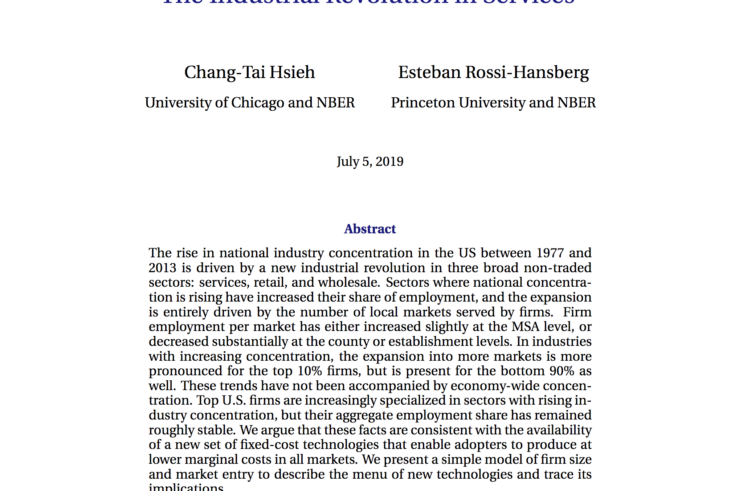Showing results for: “digital markets act”
Why the Federal Government’s Antitrust Case Against Google Should—and Likely Will—Fail
On October 20, 2020, the U.S. Department of Justice (DOJ) and eleven states with Republican attorneys general sued Google for monopolizing and attempting to monopolize the markets for general internet search services, search advertising, and “general search text” advertising (i.e., ads that resemble search results). Last week, California joined the lawsuit, making it a bipartisan ... Why the Federal Government’s Antitrust Case Against Google Should—and Likely Will—Fail
Ten Reasons Why the California Consumer Privacy Act (CCPA) Is Going to Be a Dumpster Fire
Last year, real estate developer Alastair Mactaggart spent nearly $3.5 million to put a privacy law on the ballot in California’s November election. He then negotiated a deal with state lawmakers to withdraw the ballot initiative if they passed their own privacy bill. That law — the California Consumer Privacy Act (CCPA) — was enacted ... Ten Reasons Why the California Consumer Privacy Act (CCPA) Is Going to Be a Dumpster Fire
UK Blocking of Microsoft-Activision Merger Is Anticompetitive and Anti-Innovation
The United Kingdom’s Competition and Markets Authority (CMA) late last month moved to block Microsoft’s proposed vertical acquisition of Activision Blizzard, a video-game developer that creates and publishes games such as Call of Duty, World of Warcraft, Diablo, and Overwatch. Microsoft summarized this transaction’s substantial benefits to video game players in its January 2022 press release announcing the proposed merger. The ... UK Blocking of Microsoft-Activision Merger Is Anticompetitive and Anti-Innovation
The economic impact of smoke-free air laws on the restaurant and hospitality industries
The puzzling lack of economic impacts One focus in the analysis of smoke-free air (SFA) laws has been on measuring the impact smoking bans have on the restaurant and hospitality industries. The overwhelming or “consensus” result of this research is that bans impose no adverse impact on industry revenues and employment levels (Scollo et al., ... The economic impact of smoke-free air laws on the restaurant and hospitality industries
Why Don’t People Talk About Breaking Up Microsoft?
[This post is the seventh in an ongoing symposium on “Should We Break Up Big Tech?” that features analysis and opinion from various perspectives.] [This post is authored by Alec Stapp, Research Fellow at the International Center for Law & Economics] Should we break up Microsoft? In all the talk of breaking up “Big Tech,” ... Why Don’t People Talk About Breaking Up Microsoft?
Senate Bill Looks to Rebalance ‘Internet Freedom’ and Creators’ Rights
All too frequently, vocal advocates for “Internet Freedom” imagine it exists along just a single dimension: the extent to which it permits individuals and firms to interact in new and unusual ways. But that is not the sum of the Internet’s social value. The technologies that underlie our digital media remain a relatively new means ... Senate Bill Looks to Rebalance ‘Internet Freedom’ and Creators’ Rights
Net Neutrality and Broken Records
I don’t mean to sound like a broken record, but why is the Federal Communications Commission (FCC) playing a broken record? I’ve been writing a fair bit about Federal Trade Commission (FTC) rulemaking initiatives. On the theory that you deserve a nominal break from all of that, this post is mostly about the FCC. On ... Net Neutrality and Broken Records
Do the New HMGs Move From Cheap Talk to Commitment on Out-of-Market Efficiencies?
One of the primary concerns with the Proposed HMGs was that the new approach would lead to small relevant markets in order to better reflect the Agencies’ views that the traditional approach understated the importance of competition between close substitutes. I highlighted one analytical concern with this approach in a previous blog post: The real ... Do the New HMGs Move From Cheap Talk to Commitment on Out-of-Market Efficiencies?
What if rising concentration were an indication of more competition, not less?
An oft-repeated claim of conferences, media, and left-wing think tanks is that lax antitrust enforcement has led to a substantial increase in concentration in the US economy of late, strangling the economy, harming workers, and saddling consumers with greater markups in the process. But what if rising concentration (and the current level of antitrust enforcement) ... What if rising concentration were an indication of more competition, not less?
Making Sense of the Google Android Decision (part 1): Four Problems with the EU Commission’s Market Definition
This is the first in a series of TOTM blog posts discussing the Commission’s recently published Google Android decision. It draws on research from a soon-to-be published ICLE white paper. The European Commission’s recent Google Android decision will surely go down as one of the most important competition proceedings of the past decade. And yet, ... Making Sense of the Google Android Decision (part 1): Four Problems with the EU Commission’s Market Definition
How Should We Measure Competition?
Competition is the driving force behind the success of markets. It’s hard to imagine a thriving market economy without the presence of competitive forces. But how do we actually measure competition? I use the term all the time, but do we actually have a measure of it? This question is more complex than it may ... How Should We Measure Competition?
Correcting the Record: AAG Varney and the Chicago School's Premature "Retirement"
Geoff recently highlighted AAG Christine Varney’s closing remarks at the Horizontal Merger Guidelines workshop and was fairly critical. Thom intervened to suggest that we at TOTM, while fairly critical of the agencies from time to time, also give credit where it is due — highlighting AAG Varney’s RPM article. OK, that’s enough credit for now. ... Correcting the Record: AAG Varney and the Chicago School's Premature "Retirement"










